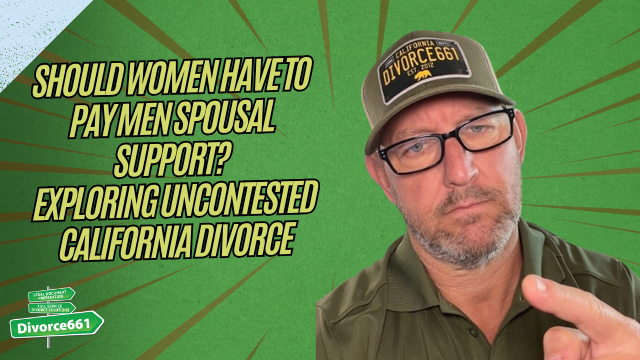👀WATCH THIS👀 Before You’re Married 10 Years And Forced To Pay Spousal Support FOREVER 👉 CA Divorce
When it comes to marriage and divorce, one of the biggest concerns many couples face is spousal support, often referred to as alimony. A common misconception is that if a marriage lasts 10 years or longer, one spouse is automatically on the hook to pay support indefinitely. However, this is not necessarily the case. Even in long-term marriages, both parties can agree to terminate spousal support. Understanding this important fact can save you from unnecessary financial burden and provide peace of mind as you plan your future.
Understanding Spousal Support in Long-Term Marriages
Spousal support is intended to help a lower-earning spouse maintain a reasonable standard of living after divorce. In California, the length of the marriage is a significant factor in determining whether spousal support should be awarded and for how long. Generally, marriages lasting less than 10 years may result in support for a shorter period, while marriages lasting 10 years or more are often considered long-term and can result in more extended or even indefinite support orders.
But here is the key takeaway: even if you have been married for over a decade, it does not mean spousal support lasts forever by default. Both spouses can come to an agreement to terminate or modify spousal support. This means that support payments are not automatically permanent, and the parties have the power to negotiate terms that work best for their situation.
How Can Spousal Support Be Terminated by Agreement?
Spousal support can be ended or altered if both spouses agree to it and put that agreement into a legally binding document. This agreement could be part of a divorce settlement or a separate post-divorce arrangement. Here are some common ways this can happen:
- Mutual agreement: Both spouses decide together to end spousal support, often because the recipient spouse has become financially independent.
- Modification due to changed circumstances: If either spouse experiences a significant change in income, employment, or financial needs, they may renegotiate support terms.
- Remarriage or cohabitation: Support often ends if the recipient spouse remarries or starts living with a new partner in a marriage-like relationship.
It is important to formalize any changes through the court to avoid future disputes or misunderstandings.
Why Knowing This Matters Before You Reach 10 Years of Marriage
Many people enter marriage with fears about spousal support obligations if things don’t work out. The idea of paying support “forever” can feel overwhelming. However, understanding that spousal support is negotiable and not an unchangeable burden can empower you to make smarter decisions and plan ahead.
If you are approaching or past the 10-year mark in your marriage, it might be a good time to:
- Discuss financial expectations openly with your spouse.
- Consider prenuptial or postnuptial agreements that address spousal support.
- Consult with a family law attorney to understand your rights and options.
Taking these steps can help protect your financial interests and reduce anxiety about the future.
Conclusion: Spousal Support Is Not a Life Sentence
Long-term marriages do not automatically mean that one spouse will have to pay spousal support forever. As explained, both spouses have the ability to agree to terminate or modify spousal support even after a decade or more of marriage. This flexibility is crucial for adapting to changing financial realities and ensuring fairness for both parties.
By staying informed and proactive, you can avoid the myth that spousal support is an unending obligation. Instead, you can approach your marriage and potential divorce with clarity and confidence.
Remember: Spousal support is about fairness and support—not a permanent financial sentence.



